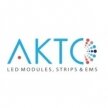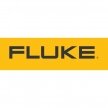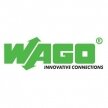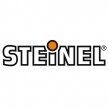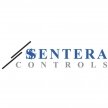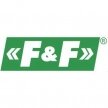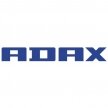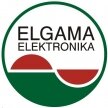-
Product Catalog
- Security and Surveillance Systems
- Automatic Circuit Breakers for Direct Current (DC) Circuits with Integrated Overload, Short-Circuit, and Voltage Stabilization Protection Functions
- Lighting with the help of electrical energy
- Automation and Control Systems
- Sealing profiles | rubber | gaskets | strips
- Inflatable Liquid Storage Tanks | Reservoirs | Bladders
- Inflatable rubber plugs for sealing high-pressure plumbing pipes
-
Electrical distribution and installation
- Electrical power | power cables | wires with copper conductors
- Electrical Energy Supply | Distribution Panels | Boxes | Accessories
- Smart Automated Products | Control | Transmission | Detection
- Modular equipment installed in electrical distribution boxes | panels
- Smart electrical network analyzers
- Power management and backup
- Fuse holder blocks
- Fuse disconnectors
- Fuses
- Electrical installation components
- Extension cords
- Industrial | domestic socket outlets | plugs | adapters for electricity supply
- High Voltage Equipment | Components 6kV | 10kV | 12kV | 20kV
- Underground Power Transmission | Overhead Power Lines
- Solar Energy Generation and Management Equipment
- HVAC control solutions for heating and ventilation.
- Special products and accessories
- Other products
- Safety tools
- Quality used products
Modular electrical network analyzers | mounted in electrical distribution boxes | panels
- Read more
Smart power network analyzers, both three-phase and single-phase, are advanced devices designed to monitor, analyze, and manage electrical energy. Smart-MAIC devices can analyze and monitor not only electrical energy but also water, gas, heat, and environmental parameters such as temperature, humidity, pressure, light, wind, CO₂, TDS (total dissolved solids), and pH. These devices enable users to accurately assess energy consumption, detect issues, and optimize the performance of the power network. They are essential in industrial, commercial, and residential systems as they help ensure system stability and efficiency.
-
Read more
Three-Phase Analyzers
Functionality: Three-phase electrical network analyzers measure and monitor all three phases in power supply. These devices can monitor:
Voltage: Measures the voltage of each phase and determines if it is within normal limits.
Current: Measures the current strength in each phase, allowing the identification of imbalances.
Power Analysis: Records active, reactive, and total power, helping to monitor energy consumption across all phases.
Energy Quality: Detects issues such as surges, voltage drops, harmonics, and disturbances that can negatively affect equipment performance.
Harmonic Distortion Measurement: Measures the level of harmonic distortions that can cause energy losses and damages.
Event Logging: Records electrical network disturbances, such as voltage spikes, so users can analyze issues.
Areas of Use:In Industrial Production Lines: Ensures that the power supply is stable and optimal, protecting expensive equipment.
In Large Commercial Buildings Management: More efficiently manages energy consumption and optimizes costs.
Single-Phase AnalyzersFunctionality: Single-phase electrical network analyzers monitor and analyze electrical energy in one phase. Key functions include:
Voltage Measurement: Measures voltage to ensure it meets specified standards.
Current Measurement: Monitors current strength, allowing users to identify potential imbalances or overloads.
Power Analysis: Records active and reactive power, allowing energy consumption to be monitored.
Energy Quality Analysis: Detects potential energy quality disturbances, such as surges or disturbances.
Event Logging: Records electrical network disturbances, allowing users to analyze situations that may affect energy consumption.
Areas of Use:In Residential Systems: Monitors energy consumption at home, helping users understand and optimize their costs.
In Small Commercial Spaces: Manages energy consumption and ensures that lighting and other devices operate efficiently.
General Features:Real-Time Monitoring: Ability to monitor energy parameters in real time, allowing for quick responses to issues.
Data Logging: Collected and recorded data allows for long-term analysis of energy consumption, aiding in efficiency improvement.
Remote Management: Most modern devices provide the ability to manage and monitor energy consumption remotely using mobile apps or computer programs.
Integration with Other Systems: Often can be integrated with other management systems to optimize energy consumption.
Advantages:Energy Efficiency: Helps reduce energy costs and losses, ensuring better energy usage.
System Stability: Provides valuable information about power quality, enabling stability and reliability.
Convenience: Automated monitoring and analysis make it easier for users to manage energy consumption.
Disadvantages:Cost: Smart analyzers may be more expensive than basic measuring devices, but their functionality often justifies the investment.
Technical Knowledge Required: While installation is not complicated, some knowledge may be needed to configure and use the devices properly.
Technological Disturbances: Like any electronic devices, failures or disturbances may occasionally occur that need to be addressed.
Smart electrical network analyzers, both three-phase and single-phase, are essential devices for monitoring and analyzing electrical energy. They help ensure energy efficiency, stability, and reliability, allowing users to optimize their energy systems and contribute to more sustainable energy usage.No items found.
US IN SOCIAL NETWORKS

